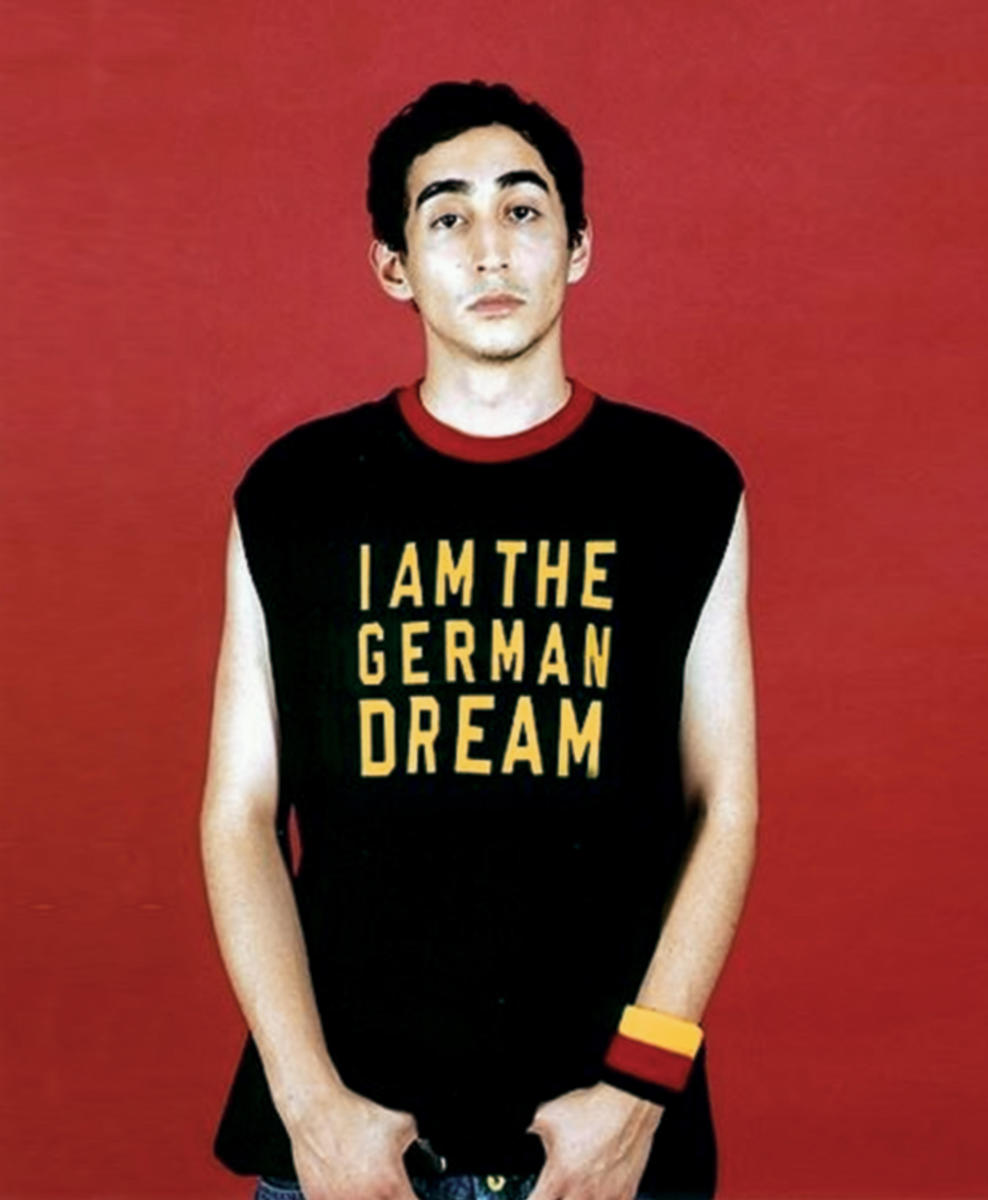
At the age of twenty, Ekrem Bora, alias Eko Fresh, who was born in provincial Mönchengladbach to a Turkish immigrant family, has grand schemes for the future: He wants to be nothing short of König von Deutschland, or at the very least, the king of German hip-hop. “If you don’t know him yet, you’d better get used to it, he’ll be the king of Germany,” sings his partner Valezka on the Eko Fresh EP King of Germany, released in 2003. And chances are he’ll succeed — unless his plans are thwarted by his big mouth.
After the release of the King of Germany EP, produced with help from well-known Turkish-German rapper Kool Savas, Eko Fresh decided to go at it alone, releasing his first solo album the same year. On that record, Eko adopted an unabashedly more commercial style; “The World’s Greatest,” a hit by rhythm and blues superstar R. Kelly, was the inspiration for the song “I’m young and I need the money” from Eko Fresh’s eponymous debut album. In interviews, the rapper admits that he hopes to become the German Puff Daddy. No small feat. While he topped the charts with “I’m young and I need the money,” he ultimately lost the respect of the German hip-hop scene; critical of his new rhythm and blues direction, they have distanced themselves from hyper-ambitious Eko Fresh.
As a result, Eko Fresh broke with friend and mentor Kool Savas, founding his own label, German Dream, in 2004. The exact circumstances surrounding the split remain unknown — though fans, friends, and German rap critics continue to indulge in endless guessing games and speculation. Imagine rappers on German Geraldo Rivera. In late 2004, the conflict broke into public sight, finding its way into the rappers’ art: On the track “The Reckoning,” Eko presented his version of the break in the classic “battle” tradition. Neither Kool Savas nor the Berlin rapper Fler from the notorious Aggro Berlin clique were spared. In short, they were brutalized.
With this, the games began. The much-offended Fler countered with the track “Hollywood Turk,” calling Fresh “the embarrassment of the year,” and rapping “I know Turks that are ashamed of you.” Bushido, a Berlin rapper with a hooligan attitude, entered the fray with “Flerraeter,” while the latest contribution is the battle track “The Verdict” by Eko’s former friend Kool Savas. The beef between the rappers continues to draw in wider circles, providing endless topics for discussion within the German hip hop scene, where the events are hyped ever further via hundreds of Internet forums and websites. Meanwhile, the music press and television are (gratefully) exploiting and encouraging the battle, creating a guaranteed public space for the bizarre rock soap opera at hand.
Some malicious rumors have it that the whole drama is a publicity stunt designed to inflate record sales — not a true battle at all. After all, there is hardly a more effective means of building up a rapper’s image than a feud. That rule of thumb holds for European “new blood” such as Eko Fresh as much as it did for US rappers Tupac Shakur and Biggie Smalls, who battled it out at the beginning of the nineties, first verbally, then with well-known deadly consequences. It was arguably their violent, widely reported deaths that turned them into the iconic references they are today, ensuring a respectable turnover for their music and merchandising articles a decade on. Another very publicity-savvy drama is currently going on between Ja Rule’s Murder Inc crew and Eminem’s Shady posse, whose battle, with the involvement of the FBI and the Federal Communications Commission, has also turned to physical violence.
While the story of Eko Fresh has only just begun (he is twenty years old, after all), the battle is hardly expected to come to a bloody conclusion in the tradition of Tupac, et al — despite the associated big talk being thrown around left and right. For the time being, however, Fresh and his German Dream mates remain among the most popular and successful Turks in Germany, if not the most polemical.